Podcast: Play in new window | Download (Duration: 12:07 — 8.4MB) | Embed
Subscribe: Apple Podcasts | Spotify | Amazon Music | Android | Pandora | iHeartRadio | JioSaavn | Podchaser | Gaana | Podcast Index | Email | TuneIn | Deezer | Anghami | RSS | More
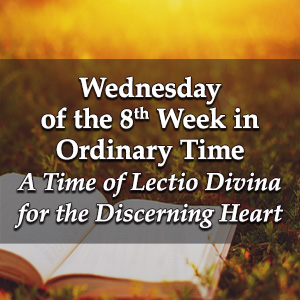 Wednesday of the Eighth Week in Ordinary Time – A Time of Lectio Divina for the Discerning Heart Podcast
Wednesday of the Eighth Week in Ordinary Time – A Time of Lectio Divina for the Discerning Heart Podcast
As you begin, take a deep breath and exhale slowly. For at least the next few moments, surrender all the cares and concerns of this day to the Lord.
Say slowly from your heart “Jesus, I Trust In You…You Take Over”
Become aware that He is with you, looking upon you with love, wanting to be heard deep within in your heart…
From the Holy Gospel of St. Mark 10:32-45
The disciples were on the road, going up to Jerusalem; Jesus was walking on ahead of them; they were in a daze, and those who followed were apprehensive. Once more taking the Twelve aside he began to tell them what was going to happen to him: ‘Now we are going up to Jerusalem, and the Son of Man is about to be handed over to the chief priests and the scribes. They will condemn him to death and will hand him over to the pagans, who will mock him and spit at him and scourge him and put him to death; and after three days he will rise again.’
James and John, the sons of Zebedee, approached him. ‘Master,’ they said to him ‘we want you to do us a favour.’ He said to them, ‘What is it you want me to do for you?’ They said to him, ‘Allow us to sit one at your right hand and the other at your left in your glory.’ ‘You do not know what you are asking’ Jesus said to them. ‘Can you drink the cup that I must drink, or be baptised with the baptism with which I must be baptised?’ They replied, ‘We can.’ Jesus said to them, ‘The cup that I must drink you shall drink, and with the baptism with which I must be baptised you shall be baptised, but as for seats at my right hand or my left, these are not mine to grant; they belong to those to whom they have been allotted.’
When the other ten heard this they began to feel indignant with James and John, so Jesus called them to him and said to them, ‘You know that among the pagans their so-called rulers lord it over them, and their great men make their authority felt. This is not to happen among you. No; anyone who wants to become great among you must be your servant, and anyone who wants to be first among you must be slave to all. For the Son of Man himself did not come to be served but to serve, and to give his life as a ransom for many.’
What word made this passage come alive for you?
What did you sense the Lord saying to you?
Once more give the Lord an opportunity to speak to you:
The disciples were on the road, going up to Jerusalem; Jesus was walking on ahead of them; they were in a daze, and those who followed were apprehensive. Once more taking the Twelve aside he began to tell them what was going to happen to him: ‘Now we are going up to Jerusalem, and the Son of Man is about to be handed over to the chief priests and the scribes. They will condemn him to death and will hand him over to the pagans, who will mock him and spit at him and scourge him and put him to death; and after three days he will rise again.’
James and John, the sons of Zebedee, approached him. ‘Master,’ they said to him ‘we want you to do us a favour.’ He said to them, ‘What is it you want me to do for you?’ They said to him, ‘Allow us to sit one at your right hand and the other at your left in your glory.’ ‘You do not know what you are asking’ Jesus said to them. ‘Can you drink the cup that I must drink, or be baptised with the baptism with which I must be baptised?’ They replied, ‘We can.’ Jesus said to them, ‘The cup that I must drink you shall drink, and with the baptism with which I must be baptised you shall be baptised, but as for seats at my right hand or my left, these are not mine to grant; they belong to those to whom they have been allotted.’
When the other ten heard this they began to feel indignant with James and John, so Jesus called them to him and said to them, ‘You know that among the pagans their so-called rulers lord it over them, and their great men make their authority felt. This is not to happen among you. No; anyone who wants to become great among you must be your servant, and anyone who wants to be first among you must be slave to all. For the Son of Man himself did not come to be served but to serve, and to give his life as a ransom for many.’
What did your heart feel as you listened?
What did you sense the Lord saying to you?
Once more, through Him, with Him and in Him listen to the Word:
The disciples were on the road, going up to Jerusalem; Jesus was walking on ahead of them; they were in a daze, and those who followed were apprehensive. Once more taking the Twelve aside he began to tell them what was going to happen to him: ‘Now we are going up to Jerusalem, and the Son of Man is about to be handed over to the chief priests and the scribes. They will condemn him to death and will hand him over to the pagans, who will mock him and spit at him and scourge him and put him to death; and after three days he will rise again.’
James and John, the sons of Zebedee, approached him. ‘Master,’ they said to him ‘we want you to do us a favour.’ He said to them, ‘What is it you want me to do for you?’ They said to him, ‘Allow us to sit one at your right hand and the other at your left in your glory.’ ‘You do not know what you are asking’ Jesus said to them. ‘Can you drink the cup that I must drink, or be baptised with the baptism with which I must be baptised?’ They replied, ‘We can.’ Jesus said to them, ‘The cup that I must drink you shall drink, and with the baptism with which I must be baptised you shall be baptised, but as for seats at my right hand or my left, these are not mine to grant; they belong to those to whom they have been allotted.’
When the other ten heard this they began to feel indignant with James and John, so Jesus called them to him and said to them, ‘You know that among the pagans their so-called rulers lord it over them, and their great men make their authority felt. This is not to happen among you. No; anyone who wants to become great among you must be your servant, and anyone who wants to be first among you must be slave to all. For the Son of Man himself did not come to be served but to serve, and to give his life as a ransom for many.’
What touched your heart in this time of prayer?
What did your heart feel as you prayed?
What do you hope to carry with you from this time with the Lord?
Our Father, who art in heaven,
hallowed be thy name.
Thy kingdom come.
Thy will be done on earth, as it is in heaven.
Give us this day our daily bread,
and forgive us our trespasses,
as we forgive those who trespass against us,
and lead us not into temptation,
but deliver us from evil.
Amen



 Tuesday of the Eighth Week in Ordinary Time – A Time of Lectio Divina for the Discerning Heart Podcast
Tuesday of the Eighth Week in Ordinary Time – A Time of Lectio Divina for the Discerning Heart Podcast Three Modes of Discernment – “What am I to do?” The Discernment of God’s Will in Everyday Decisions with Fr. Timothy Gallagher
Three Modes of Discernment – “What am I to do?” The Discernment of God’s Will in Everyday Decisions with Fr. Timothy Gallagher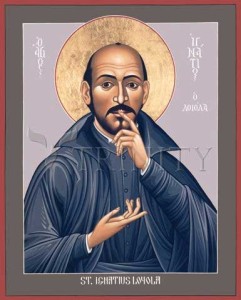 Discerning Hearts Reflection Questions:
Discerning Hearts Reflection Questions: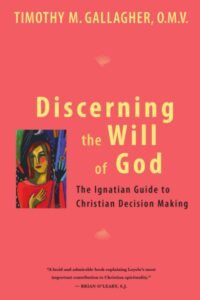
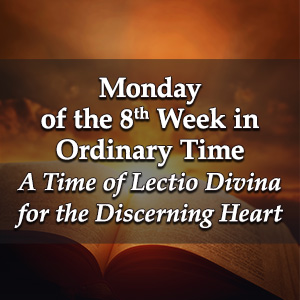 Monday of the Eighth Week in Ordinary Time – A Time of Lectio Divina for the Discerning Heart Podcast
Monday of the Eighth Week in Ordinary Time – A Time of Lectio Divina for the Discerning Heart Podcast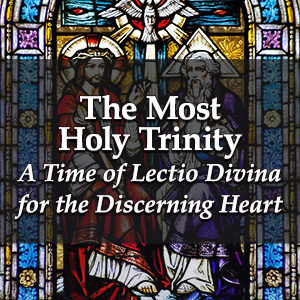 The Most Holy Trinity – A Time of Lectio Divina for the Discerning Heart Podcast
The Most Holy Trinity – A Time of Lectio Divina for the Discerning Heart Podcast
 From
From 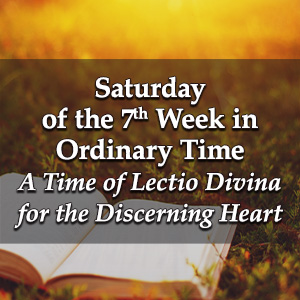 Saturday of the Seventh Week in Ordinary Time – A Time of Lectio Divina for the Discerning Heart Podcast
Saturday of the Seventh Week in Ordinary Time – A Time of Lectio Divina for the Discerning Heart Podcast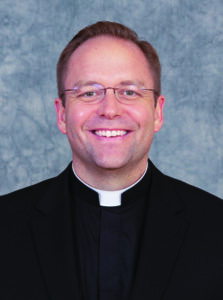
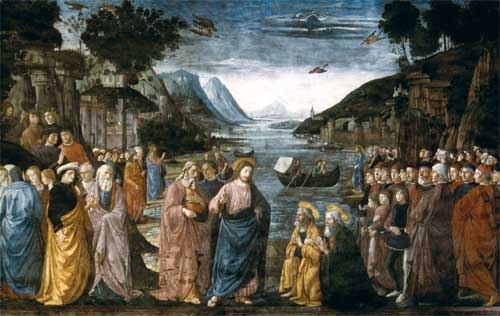
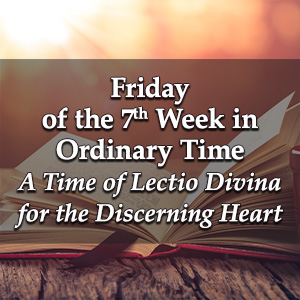 Friday of the Seventh Week in Ordinary Time – A Time of Lectio Divina for the Discerning Heart Podcast
Friday of the Seventh Week in Ordinary Time – A Time of Lectio Divina for the Discerning Heart Podcast